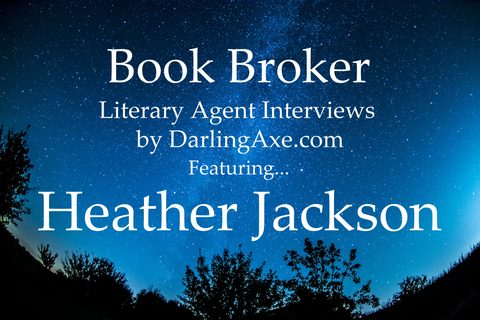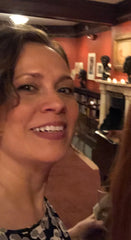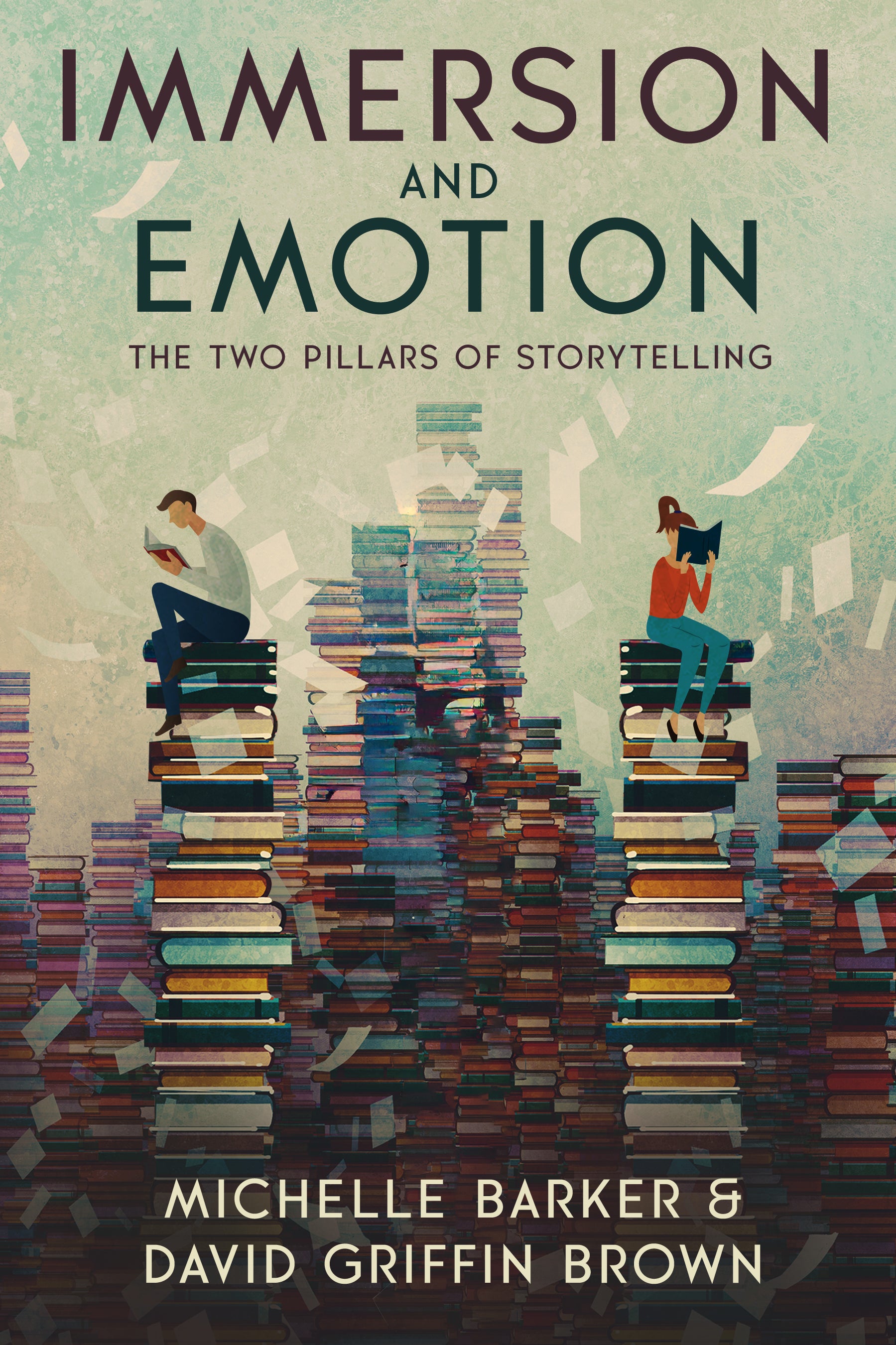Book Broker – an interview with Heather Jackson

Agent: Heather Jackson, Heather Jackson Literary Agency
Website: hjlit.com
Preferred genres: Commercial nonfiction and fiction; big ideas, gorgeous writing, books that make a difference in the world.
 Bio: Heather Jackson decided to vault over the desk to the agent side in 2016 after a highly successful career as a trade editor. In her 20+ years as an editor, she acted as the creative midwife to multiple dozens of New York Times bestselling authors and titles, including: Tim Ferriss, Jillian Michaels, Suzanne Somers, Dr. Steven Gundry, Tara Stiles, Ron Fournier, Joy Bauer, Janine Driver, Rick Hanson, Dr. Robert C. Atkins, Dr. Joseph Mercola, Dr. Arthur Agatston, Dr. Nancy Snyderman, Dr. Susan Love, Dr. Alice D. Domar, Dr. Barbara Fredrickson, Mallika Chopra, Barbara Sher, Martina Navratilova, Joe and Teresa Graedon, B. Smith and Dan Gasby, Howard Dully... among many others.
Bio: Heather Jackson decided to vault over the desk to the agent side in 2016 after a highly successful career as a trade editor. In her 20+ years as an editor, she acted as the creative midwife to multiple dozens of New York Times bestselling authors and titles, including: Tim Ferriss, Jillian Michaels, Suzanne Somers, Dr. Steven Gundry, Tara Stiles, Ron Fournier, Joy Bauer, Janine Driver, Rick Hanson, Dr. Robert C. Atkins, Dr. Joseph Mercola, Dr. Arthur Agatston, Dr. Nancy Snyderman, Dr. Susan Love, Dr. Alice D. Domar, Dr. Barbara Fredrickson, Mallika Chopra, Barbara Sher, Martina Navratilova, Joe and Teresa Graedon, B. Smith and Dan Gasby, Howard Dully... among many others.
The selective client list we are cultivating has one unifying theme: to represent authors and books that make a difference and that make you want to press the pause button on everything else—ditch the screens, the duties, the worries—to sit down and read for hours. Books that inform, inspire, entertain, surprise, help; books that make you cry, laugh, question, feel, and stretch. Books that make a personal difference and a more global one; yet always those that can ignite or shift a conversation. And, most importantly, books that can connect deeply and widely with masses of readers.
We specialize in commercial non-fiction and fiction. We represent top-tier authors in personal health and well-being, popular science and psychology, politics and current affairs, business, memoir, and self-help. We are always game for the unique or deeply moving journalistic narrative that takes us into a world we didn't know would intrigue us through its brilliant writing and insights. We love big ideas and groundbreaking big-think books. Lastly, we love a great and memorable character in women's fiction and are steadfastly looking for a reliable narrator who isn't a hot mess and a great "new-fashioned" family saga.
1) What stands out in a good submission?
There are plenty of good submissions, but in the competitive landscape that comes with seeking representation and then trying to break through the gates of a publishing house, you need to be more than good. The book has to be great: writing, story, pacing, characters... all have to deliver at the highest level. Now, what makes something stand out? All of the above together in one package and then that ungraspable thing that is true of most all reading experiences: the reader, at this time in the form of an agent, gets sparked by and connects to the work. What creates that spark? If we could completely answer that, publishing would know a lot more about their readership and how to get to them. And instead of a hit rate of 2-ish out of 10, we'd have many more books connecting with wider audiences.
2) What's a typical warning sign that a manuscript isn't ready for representation?
From an agent's perspective, there are a few red lights: a typo in the first paragraph of the pitch letter; a badly written pitch letter; or a perfectly well-written pitch but the arc or elements don't seem to hang together even before you read the work. And then it can be subtler signals, something that is too short for a book-length work of any genre, or too long, like 125,000 words for a memoir. When an author doesn't know, when writing genre fiction specifically, what the genre demands are for length, it often signals that they aren't as well-versed in what those same demands might be for a reader on that shelf.
3) What advice can you give to writers who are submitting their work?
Make every word count. Yes, old advice, but I'm applying it here to the pitch letter specifically. We won't read a book-length work if the pitch is problematic. Don't tell an agent what they like to read or will like. Don't compare your work to the biggest sellers in the category in which you're writing. Don't tell us of potential others who may read your galley to possibly support it. Show me the why for your book through an amazing, typo-free query letter. Spend a lot of time and care with it; that will signal to an agent that you are spending an equal amount of care with your work on the manuscript. Which is the other piece of advice I'd give: don't send a first draft. Go through as many iterations as you can to make it as strong as you can on your own. This will give your book the best shot at both representation and publication.
4) How do you weigh the importance of each submission component (query letter, synopsis, writing sample) when determining whether you will ask to read a full manuscript?
My agency doesn't accept unsolicited manuscripts, so we only review query letters. If someone "breaks" the agency's rules and submits without first checking what our guidelines are, then they won't get a jump ahead—instead, often the opposite. So that query letter is everything for unsolicited works. Once it has intrigued us enough to request a sample, then the writing and subject and story (depending on genre) is everything... platform is important with certain non-fiction genres, less so with debut works of fiction. Personally, I've always believed that the book itself is the biggest platform; it's the place where word of mouth can build you a readership or destroy one from developing.
5) Approximately how many query letters do you receive per year? Of those, how many will you respond to with a request for a full manuscript? And of those, how many are likely to receive an offer of representation?
Gosh, I've never counted. There are so many that we have a rule that authors will only hear from us if we are interested in reviewing their work. If I had to give a percentage, maybe we will request 5-10% of the pile and then ask for 50-75 pages of the manuscript at that time; of those, very few are market ready enough or "hit." So maybe 1% of the slush pile even gets to a place where we request the whole manuscript. That doesn't mean we don't find amazing talent in the slush pile; I've a number of authors who came to the agency through these queries. So even though the odds are not good ones, it doesn't mean all hope is lost. Great books find their way.
6) What is the average length of time it takes to place a manuscript with a publisher, and what is your strategy for a client whose manuscript isn't selling?
When it comes to the big 5, the window for selling a project is getting tighter and tighter. If it's going to be a sizable advance, it's going to sell quickly, within two weeks from the start of the submission process to auction. With many books, you'll begin to hear from editors within 24-48 hours if they are interested; I used to joke as an editor that you'd get an emailed submission and open it, inhale, and be expected to exhale out an offer. I think that joke is more the current reality than a joke anymore; it's so competitive that editors are reading very fast (sometimes too fast, because of market needs/demands and all the other work their jobs require) so they don't miss out on something special. I don't think agents are driving this bus, though; I think the idea that lists need to be filled with "huge" books is a big part of it. If you don't sell within that 2-3 week window, then the process can take many months as you create new submission targets. I've had books where the 42nd time was the charm. I will try to find a good home for as long as it takes for the full market to have spoken. But with each round, the houses get smaller and the advances as well. And then an author must decide whether placing the book is as important as retooling plans and instead considering a new work; you can only be a debut novelist once and an author doesn't want a bad track record in the way of future works. So it's all a delicate dance.
7) What's the best (non-client) book you've read recently, and how did it hook you?
I re-read THEIR EYES WERE WATCHING GOD by Zora Neale Hurston; and I was so glad I did. What an absolutely gorgeous writer and I found myself highlighting text throughout. Then Emily Henry's BEACH READ, which I thought was spritely, fun, and had great heart too. I'm currently reading JONAH'S GOURD VINE by Zora Neale Hurston and IF I HAD YOUR FACE by Frances Cha. The latter had such a gorgeous jacket and good word of mouth that I had to give it a read. I don't know how to answer the "how" part, but only the "whether." When you've spent a life reading books and working on them for a living, they either do or they don't hook you. Authors should know that it's not necessarily their error/fault/writing if an agent doesn't respond to their work. They should look at us, and editors too for that matter, as people who are handed dozens of boxes of candies each week and, though we love candy and are in the business of candy, that overexposure can make us much more responsive to something that "tastes" novel to us. Perfectly good candy gets thrown out each week, sadly, during this process.
8) Can you tell us about an exciting author you're working with at the moment?
I don't think I can pick one author, and I know I can't list all authors. But maybe I'll pick a few to show the scope of the work the agency is doing...
I'm thrilled for Joel Marion, whose diet and health book is #1 at BN and has been "eating up" the lists the last few weeks; we worked together some 15 years ago on his first book and to see this one take off is both heartening and a wonderful full-circle experience.
I am delighted that the extremely talented journalist Lauren Kessler and her very important work, THE YELLOW HYDRANT, following the lives of six men and women as they re-enter their communities and lives during their first year home after prison has found a passionate editor and home.
I adore Janet Skeslien Charles' THE PARIS LIBRARY and it has been wonderful to see the whole world, literally, respond to this work of historical fiction that features a dual narrative of friendship, betrayal, and books—as well as the librarians in WWII who stood up to the Nazi Book Protector at the American Library in Paris. I can't wait for our February publication!
I could go on and on, I'm very blessed to work with incredibly talented people; I love being their advocate.





